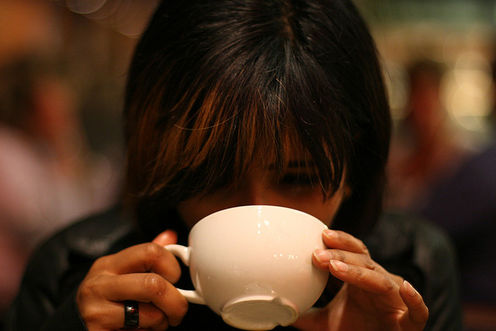
Feeling miserable? Is your nose blocked and your throat sore? If not, it will be sometime this winter, probably at least a couple of times. And then someone will probably say at your low ebb that “you need a hot toddy (or tottie)”.
A hot toddy is the generic name for a hot drink that contains spirits, water, citrus, something sweet and something spicy. Most people use whiskey or brandy. The sweet component is made up of liberal amounts of sugar or honey. The preferred spices usually include the Christmassy ones like cinnamon, cloves, ginger, cardamom and/or nutmeg.
Toddies have much in common with mulled wine (also variously known as hot wine, glögg, Glühwein, vin chaud), in which red wine or port plays essentially the same role as spirits, is mixed with sugar and spices, and is similarly used on chilly winter nights for the same revitalising purposes. Yet it is the humble toddy that has become colloquial for “tonic” or “pick-me up”.

The tradition of mulled wine and its efficacy dates back to ancient Rome. But toddies only joined the drink cart in the 16th and 17th centuries. It may be that if you had no access to wine (which was reserved for the sacrament, imported and/or prohibitively expensive), you had to improvise. Indeed, frugal innovation was a key attribute of “make-do” Calvinist ethic.
In Latin, totie (totus) meant something that was “brought together or amalgamated”. The idiomatic “tottie” perhaps refers to the way its otherwise insoluble spices are slowly infused together into the alcohol over a low heat.
The hot toddy is very different from the beverage made from the sap of palm trees across Asia (which is also known as toddy, kallu or palm wine). It is sometimes suggested that this is where the hot toddy may have appropriated its name from, as nostalgic travellers returning to a sunless world devoid of palm trees yearned for a hot substitute to remind them of warmer climes.
Another explanation says the name “toddy” refers to the spring called “Tod’s Well” which was the main water supply to Edinburgh. The murky peat-stained water on which the Scots subsisted probably looked much like the murky spice-laden water-added whiskey concoction that they called a “toddy”.
Whiskey was historically known as “aqua vitae” (the water of life) and its medicinal properties widely recommended as a cure-all. But in those days, whiskey was almost unpalatable (and still is to many). Another origins story suggests the “toddy” was invented by doctors simply as a means to make medicinal whiskey agreeable to women and children.
Interestingly, the word “toddy” seems to come into use about the same time as (or a few glasses before) the word “toddle” meaning an unsteady gait. This also gives rise to the colloquial term for young children as “toddlers”.
However it is concocted or wherever it originally came from, its therapeutic properties are now legendary.
Allopathic traditions believe that preventing or treating an illness with its opposite is the best route. So the opposite of cold is appropriately hot, with added spices and alcohol to bring even more redness to the cheeks.

Certainly, the steam from any hot drink is able to dissolve nasal mucus to open blocked nose and sinuses, for a few minutes at least. This may be the sole basis of the legendary tonic effects of chicken soup.
The citrus is a source of vitamin C. But even if you took vitamin C supplements every day for prevention, you still won’t avoid catching a cold.
Nutmeg, cloves and cinnamon have long been used to treat colds and really do contain chemicals with antihistamine, anaesthetic and/or anti-inflammatory properties. But not in the small doses obtained in a palatable hot toddy.
Probably the only proof is in fact the small amount of alcohol in a toddy, which has sedative and relaxant effects. As ever, high doses may make things worse for your cold. But with the spice and preparation time, you really only ever get to drink one hot toddy.
Ultimately, the cold will get better by itself. But while you’re feeling down, a toddy can help you forget your miseries. Which is really what it’s for.
Further reading – Health Check: does alcohol have medicinal properties?
Merlin Thomas does not work for, consult to, own shares in or receive funding from any company or organisation that would benefit from this article, and has no relevant affiliations.
